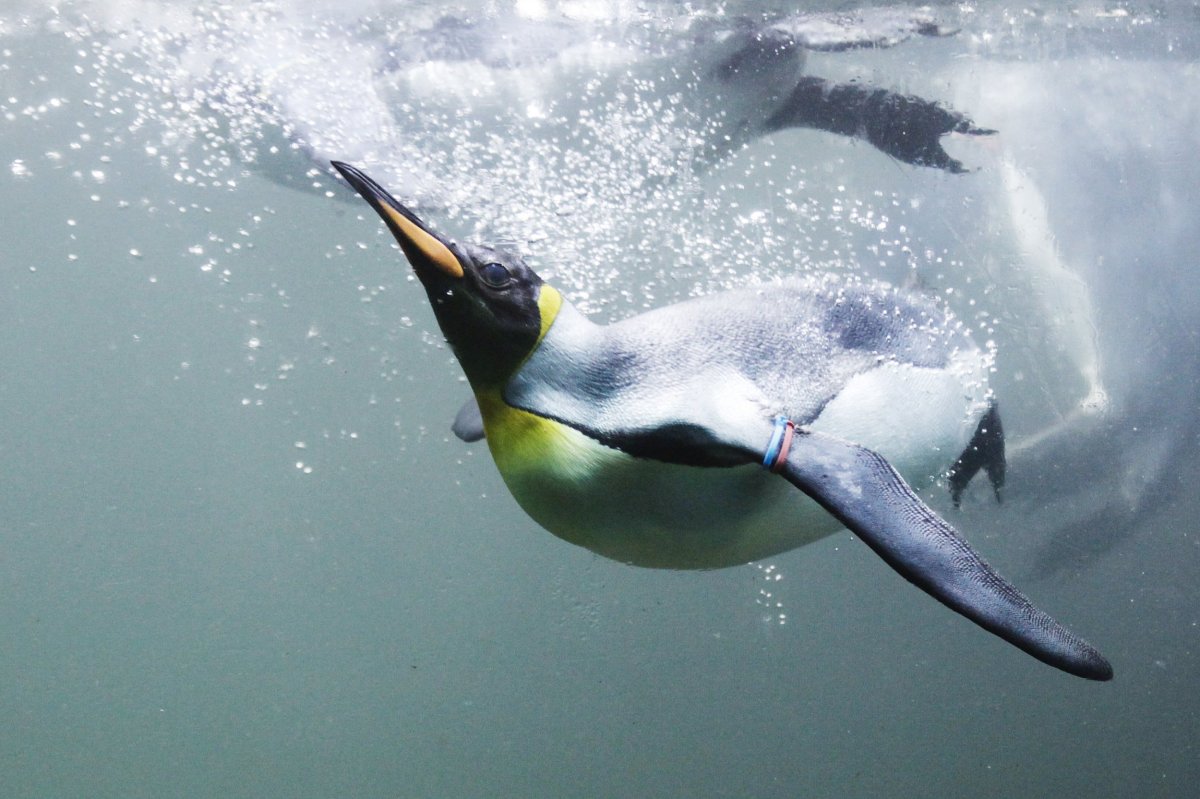The biggest colony of king penguins on Earth has declined drastically in the last 30 years.
In a study published in the August issue of Antarctic Science, researchers conducted the first estimation of the colony since the 1980s. The team found that a huge king penguin population in the southern Indian Ocean declined by 88 percent.
King penguins, which weigh an average of 30 pounds and can be as tall as three feet, are known for their characteristic orange coloring on their upper breast, beak, neck, and head, according to National Geographic. The penguins can travel more than 250 miles to eat, diving into the depths of the ocean to eat bioluminescent lanternfish and squid.
Despite their inclination to travel to find food, they do not migrate. The penguins live in the same areas for years. The large colony lives on Ile aux Cochon, or Pig Island, a sub-Antarctic member of the Crozet Islands and part of the French Southern and Antarctic Lands. The team of researchers found that the colony, which once consisted of 500,000 pairs of penguins, now only consists of 60,000 pairs.
"It is completely unexpected, and particularly significant since this colony represented nearly one-third of the king penguins in the world," Henri Weimerskirch, first author on the paper and ecologist at the Centre for Biological Studies in France, told Agence France Presse.
The team was able to analyze the population size non-invasively by using aerial photographs taken from a helicopter, as well as satellite images. While no cause has been found for the surprising decline, the scientists have some ideas for what might be playing a role.

Climate change, for example, might have contributed to the decline. Climate change can amplify El Nino weather events, which warms the ocean. In 1997, a strong El Nino warmed the ocean that surrounds the penguins' home, pushing the various animals that the king penguins eat further away than they swim for food. There are no other islands near enough for the penguins to swim to that they could alternatively live on.
The scientists think that overcrowding of the area could have contributed to the decline of the colony as well. When a population is larger, there is more competition between the penguins. Lack of food can cause a rapid drop in population size when the group is that large, an effect that can be amplified by climate change.
Avian cholera is also considered by the team to have played a role because it's killed seabirds on nearby islands and has affected some king penguins before. The team hopes they will return to Ile aux Cochon in early 2019 to further pinpoint the cause of the decline.
Uncommon Knowledge
Newsweek is committed to challenging conventional wisdom and finding connections in the search for common ground.
Newsweek is committed to challenging conventional wisdom and finding connections in the search for common ground.
About the writer
To read how Newsweek uses AI as a newsroom tool, Click here.








